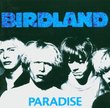| All Artists: Johann Sebastian Bach, Johannes Brahms, Santiago Rodríguez Title: Johannes Brahms: Works for Piano Members Wishing: 0 Total Copies: 0 Label: Elan Records Release Date: 12/1/1995 Album Type: Import Genres: Special Interest, Classical Styles: Chamber Music, Historical Periods, Baroque (c.1600-1750), Classical (c.1770-1830), Instruments, Strings Number of Discs: 1 SwapaCD Credits: 1 UPCs: 034063220020, 675754247324 |
Search - Johann Sebastian Bach, Johannes Brahms, Santiago Rodríguez :: Johannes Brahms: Works for Piano
 | Johann Sebastian Bach, Johannes Brahms, Santiago Rodríguez Johannes Brahms: Works for Piano Genres: Special Interest, Classical |
CD DetailsSimilar CDs
|
CD ReviewsBach/ Brahms is Spectacular... Timothy R. Carpenter | Philadelphia, PA | 12/15/2007 (5 out of 5 stars) "This whole disc is a pleasure to listen to, but the five stars is for the performance of Brahms' arrangement of the great violin Chaconne for piano left-hand. The Brahms arrangement is faithful to Bach's (implied) harmonies - as opposed to Busoni's rather more romantic (bombastic?) arrangement. Rodriguez's performance is virtuosic and musical. The cumulative effect is terrific: I can never just listen to it once. Highly recommended." A fine Brahms recital, despite the doctored Paganini Variati Discophage | France | 07/03/2008 (5 out of 5 stars) "Santiago Rodriguez is a Cuban-born, Juilliard-trained pianist and the recipient of the silver medal from the Van Cliburn Piano Competition in 1981. He recorded this Brahms recital for Elan in 1985.
He offers a fine version of the great Paganini Variations. The virtuosity is obvious, but it doesn't call attention to itself, as it often does with Katchen (Brahms: Handel Variations, Paganini Variations). Rodriguez can develop impressive power (in I/7 & 8 for instance), but unlike Katchen the discharge is not constantly climactic and allows for accents (I/1) and a fine sense of nuance (it is rare to hear in I/2, as here, the dynamic shadings as Brahms wrote them). He plays with nimble fingers in II/5 & 6 and, like Katchen in his second and more famous recording - but less than Arrau (Brahms) - he conveys the "ferocity" called for by Brahms in II/10 by adopting a deliberate tempo and massive tone. He dashes through II/7 and II/11 with wrists mounted on springs. It is only in the first part of I/14 - the great finale of book I (but more of that anon) - that I might have wished for more frenzy - but it is there all right in the second part. He imbues II/2 and II/12 with a Romantic turbulence where others have favored a more stately approach - and it works. He brings a great tango atmosphere to I/13 (track 12), glissandos and all. His inner voicing in I/4 may not be as remarkable as Arrau's or Duchable's (Brahms: Intermezzi Op117; Variations in Am Op35), but it is in I/9, and likewise with left-hand clarity, not so great in I/12 (in which the important left-hand melody doesn't come out so clearly from the right-hand figuration) but perfect in II/3 and II/7. His attention to the details of Brahms' articulation marks is often to be lauded (he is the only one I've heard to play the right hand in I/6 as Brahms wrote it, all staccato), making it all the more surprising when he doesn't. In I/10 in particular he fiddles with tempo from bar to bar: not that sounds chocking, but if Brahms had wanted it to sound that way he would have written it differently. And I am not sure what Rodriguez plays as final notes for I/12, but it doesn't seem to be what Brahms wrote. So ultimately my only regret - but it is not menial - is that Rodriguez has chosen to play not the complete Paganini, but what he calls "Michelangeli's gambit" and which he claims is pianist Arturo Benedetti Michelangeli's own selection and reordering of the Paganini variations - although it is not really, if what Rodriguez has in mind is Michelangeli's only studio recording from 1948 (Arturo Benedetti Michelangeli (Références)). In fact Michelangeli's tossing around and reordering of the different variations was significantly more radical than Rodriguez'. The latter only plays - God knows why - a sequence of I/5, 8, 6, 7, and, like Michelangeli, uses I/13 and 14 as a "grand finale" at the end of the Variations, omitting althogether the 9th variation of both volumes and, more regrettably still, the 14th Variation and finale of book II. Rodriguez invokes a better "musical continuity" - I find no lack of continuity in playing the two books complete, but I do find that it is a big damage to omit those three numbers - especially when the rest is played so well as by Rodriguez. At least he plays I/14 complete and not drastically cut like Michelangeli (and Anda, for that matter, in an otherwise "normal" rendition of the two books: Brahms: Intermezzi Op117; Piano Sonata in Fm No3, Op5). Heard over headphones there are strange shifts of stereo perspectives sometimes, such as at the beginning of II/1 (track 7), but it is not too bothersome. Brahms' transcription for piano left-hand of Bach's great Chaconne for Violin (from the 2nd Partita BWV 1016) is a masterpiece. That the Chaconne is in itself such a masterpiece helps, of course. But Brahms' transcription is a tour-de-force of piano technique and furthermore of musical depth, making it sound entirely intrinsic to the instrument. Why isn't played more often, and part of the accepted and widely performed Brahmsian canon, I wonder. Maybe for no better reason than the fact that it doesn't bear an opus number. Rodriguez offers a fine reading, beginning at a spacious tempo, ample in tone, often massive and deep in sound, lending it a moving, brooding nobility. Even when he strays from Brahms indications of articulation (most blatantly in the passage at 8:43 which he takes with a light staccato rather than the indicated legato) it is convincing. I like the way the original violin is always kept in mind in the way he shortens the value of harmonic chords, evoking the violin's multiple stops. The Waltzes op. 39 are played here in their arrangement for piano solo. Rodriguez plays them with charm, wits, a fine variety of touch, and an appropriate sense of nostalgia in some. He gives the 16th and last Waltz penultimate position, in order to end the cycle with the hauting lullaby-like # 15. TT is 53:03, which I guess was OK in 1985, when LP was still ruling. But given the quality of Rodriguez' playing, one would have wished for 20 minutes more. " |



